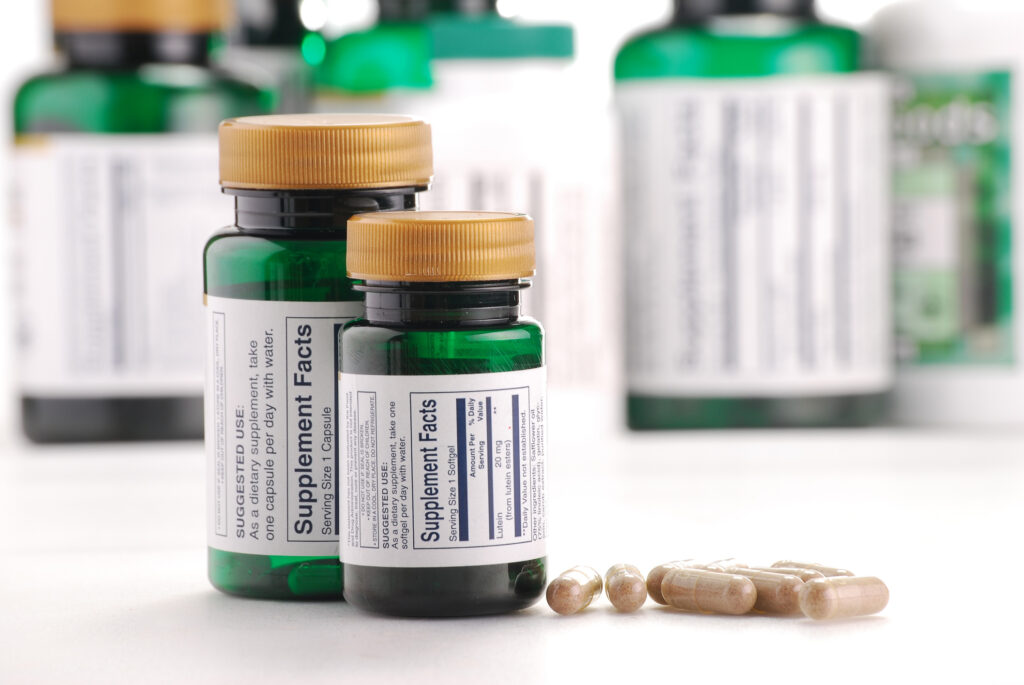Your go-to guide for choosing the best over-the-counter eye supplements—plus when to consider an AREDS2 formula.
You don’t need a prescription to boost your eye health, but with aisle after aisle of “vision blends,” how do you know what works? In this post, we’ll break down these over-the-counter eye vitamins:
- The key nutrients in popular over-the-counter eye vitamins
- What basic multivitamins deliver—and what they miss
- When an AREDS2 supplement is the proven choice for reducing the risk of macular degeneration
- How to shop smart, wherever you’re buying. Choose high-quality eye vitamins with key nutrients—lutein, vitamin A, C, and E—for comprehensive support.

Why OTC Eye Vitamins Matter
Diet alone can leave gaps in the antioxidants and minerals your eyes rely on, especially if you spend hours at a screen, live in a higher-risk age group, or have a family history of eye disease. A simple, daily supplement can help fill those gaps, supporting:
- Tear-film health and dry-eye comfort
- Retinal antioxidant defenses
- Normal visual function in low light
- Overall ocular surface integrity
The Core Four: What Every Bottle Should Offer
When you scan the label, look for these foundational nutrients:
| Nutrient | Typical OTC Dose | Benefit for Eye Health |
| Vitamin C | 250–500 mg | Powerful antioxidant, supports collagen |
| Vitamin E | 100–200 IU | Scavenges free radicals in cell membranes |
| Zinc | 10–25 mg | Essential for vitamin A transport & repair |
| Omega-3 (EPA/DHA) | 500–1000 mg | Supports tear film & retinal cell function |
Most good multivitamins or “vision blends” will include at least three of these four. If yours doesn’t, swap brands or add the missing piece separately.
Beyond the Basics: Lutein, Zeaxanthin & More
Some formulations go a step further, adding:
- Lutein & Zeaxanthin: Macula favorites that filter blue light and protect central vision
- Copper: Paired with zinc to prevent imbalance
- Beta-Carotene/Vitamin A: For corneal health and night-vision support
These extras can be valuable, especially if you’re over 50 or have extensive screen time, but they’re not strictly necessary for everyone.
When You Need AREDS2
If you’ve been diagnosed with intermediate or advanced AMD, the AREDS2 clinical trial formula is the only OTC supplement proven to slow progression. AREDS2 boosts lutein/zeaxanthin and fine-tunes mineral doses.
Ask your retina specialist whether an AREDS2-grade supplement (500 mg C, 400 IU E, 80 mg Zn, 2 mg Cu, 10 mg Lut, 2 mg Zea) is right for your stage of AMD.
Shopping Smart: Your 3-Step Checklist
- Read the Label: Verify core nutrients (C, E, zinc, omega-3) and lutein/zeaxanthin, if needed.
- Check Dosages: Stay within safe daily limits (eg, Zinc ≤25 mg, Vit E ≤400 IU).
- Buy Reputable Brands: Look for USP or NSF certifications, and avoid proprietary “blend” dosages that hide exact amounts.
Need Help Choosing?
At Southwest Eye Center, you’re always welcome to discuss any questions or concerns during your eye exam. Your doctor can help you determine whether a standard over-the-counter eye vitamin or a specialized AREDS2 formulation is appropriate based on your eye health and medical history.
Want personalized recommendations? Schedule a comprehensive eye exam we’re here to support your vision every step of the way.
